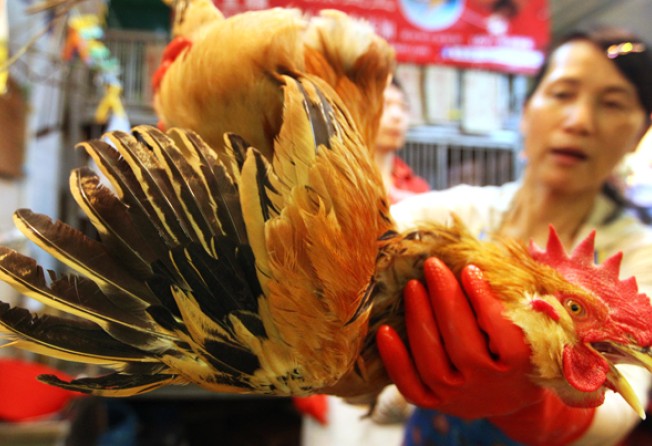
Scientists envision a possible new epidemic wave of bird flu

Fresh human cases in eastern China of a deadly new strain of bird flu signal the potential for "a new epidemic wave" of the disease in coming winter months, scientists say.

But a new case in October in a 35-year-old man from the eastern province of Zhejiang shows that the virus "has re-emerged in winter 2013" and "indicates a possible risk of a larger outbreak of H7N9 this winter", according to mainland and Hong Kong researchers writing in the online journal Euro surveillance.
Professor Benjamin John Cowling, who heads the Division of Epidemiology and Biostatistics at the University of Hong Kong, said that in this new H7N9 case the virus was very similar to the virus that caused the spring outbreak, indicating that it had persisted in an unknown reservoir during the summer.
"It is concerning that we still have not identified that reservoir. If H7N9 follows the pattern in other influenza viruses, we expect an increase in transmission during the winter, and if the prevalence of H7N9 increases in poultry then we would expect an increase in the number of human cases resulting from exposure to infected chickens," he said.
"The Chinese government still has time to implement control measures to avert a potential major epidemic this winter."
But drawing from past experience, animal surveillance was unable to provide early warning of areas at increased risk of human infections with H7N9.
"In the longer term it would be important to consider a more comprehensive restructuring of the poultry production and distribution system in China," Cowling said.
"In the short-term, interventions such as live poultry market closures, or at least regular rest days [as practiced in Hong Kong and some mainland cities] may be the best available intervention to reduce the risk of human infections."
Flu experts have been warning that despite the marked drop off in cases during the summer months, the threat posed by H7N9 bird flu has not passed.
Ab Osterhaus, a leading virologist based at the Erasmus Medical Centre in the Netherlands who has been tracking the virus, said earlier this month: "We're bracing for what's going to happen next."
The new H7N9 case in Zhejiang differed from previous ones in that it was a severe case in a younger patient "with no obvious underlying diseases and no obvious recent direct contact with live poultry", according to the paper.
Most laboratory-confirmed cases in the past had been people over the age of 60, many of whom said they'd had recent exposure to poultry, generally at live bird markets.
The case of the 35-year-old man, plus another H7N9 infection confirmed just a day ago, suggest the virus "has apparently continued to circulate in an animal reservoir during the summer", the researchers said.
Zhejiang Provincial Centre for Disease Control and Prevention said yesterday health authorities expected the occurrence of sporadic cases in the coming winter and spring seasons, but there would not be large scale, human-to-human transmission.